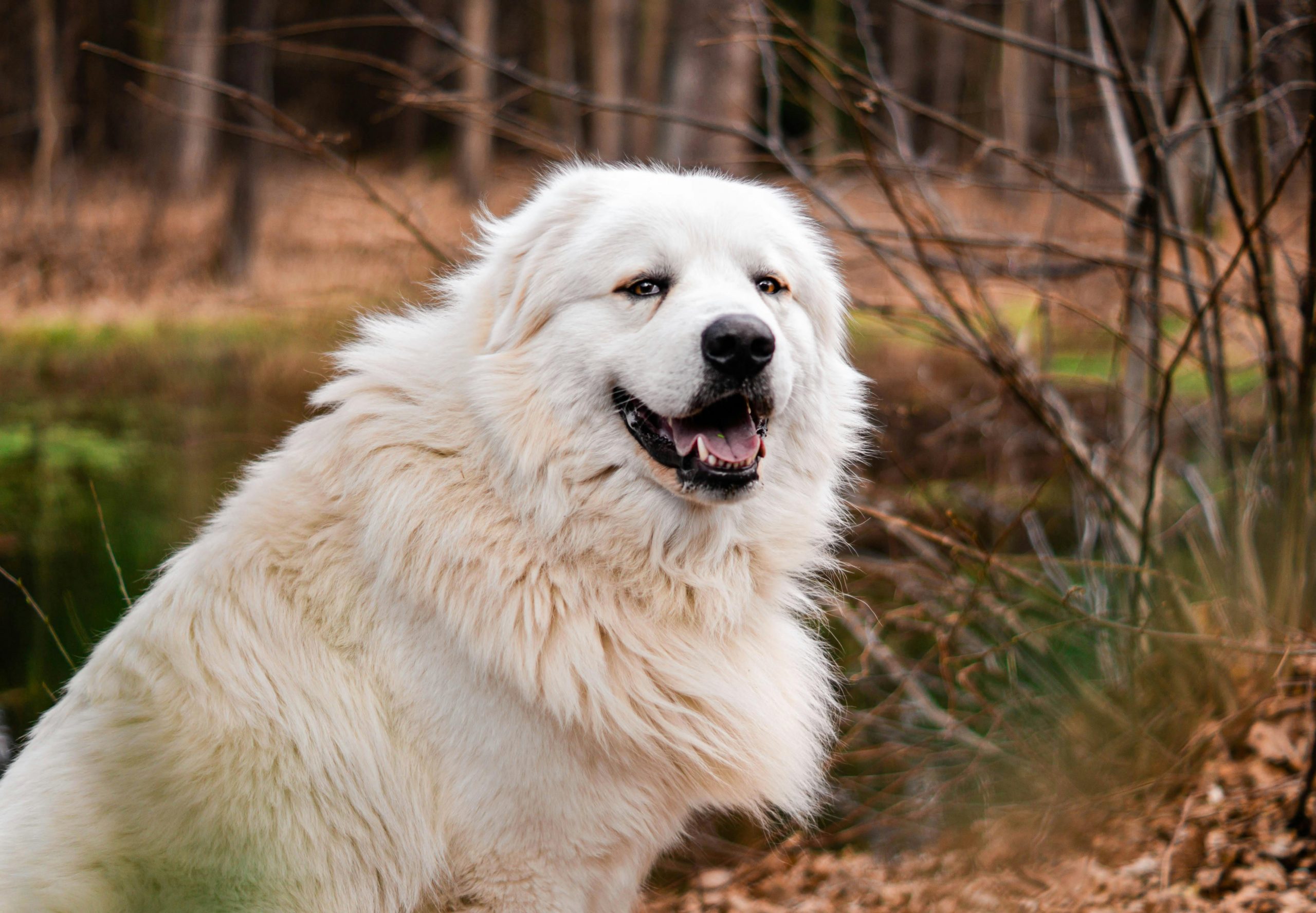The Great Pyrenees, known for their majestic appearance and calm demeanor, is a breed that historically served as a guardian of livestock on the steep mountain slopes of the Pyrenees between France and Spain. With their thick, white coats and powerful build, they are both imposing and serene, embodying a blend of strength and gentleness. These dogs are celebrated for their protective nature, intelligence, and independence. Alongside these notable traits, the Great Pyrenees exhibit a series of unusual habits that are deeply rooted in their instincts and working background. These behaviors often reflect their need for autonomy, their historical roles in isolated environments, and their methods of communicating with humans and other animals. This article explores seven of the most unusual habits of the Great Pyrenees, providing insights into each behavior and offering advice on how owners can effectively manage these distinctive traits.

1. Nocturnal Guarding
One of the most distinctive behaviors of the Great Pyrenees is their tendency to become more active and alert at night. This nocturnal guarding habit stems from their historical role as protectors of flocks, where threats from predators typically occurred during the night. Owners might find their Great Pyrenees pacing or barking in the late hours, which can be challenging in residential settings. To manage this behavior, ensuring that they have a quiet, comfortable space indoors at night can help reduce their need to patrol and guard. Additionally, adequate exercise during the day can help adjust their sleep cycles to more family-friendly hours.
2. Wandering Tendencies
Due to their background in expansive mountain regions, the Great Pyrenees has a natural inclination to wander and patrol large territories. This habit can manifest in attempts to roam far beyond home boundaries, which can be dangerous in urban or suburban settings. It’s crucial for owners to secure fencing and provide ample space within property limits to explore. GPS trackers and regular training sessions emphasizing recall commands are also beneficial in managing their wandering tendencies.
3. Selective Hearing
The Great Pyrenees is known for its independence, which can often appear as selective hearing. This breed has been bred to make decisions autonomously while guarding flocks, which can translate into a stubborn or selective response to obedience commands. This behavior requires patience and consistency in training, using positive reinforcement techniques to engage their cooperation and respect. Training sessions that focus on building a bond and establishing clear communication can be particularly effective.
4. Digging Behavior
Great Pyrenees might engage in digging, a habit that can be traced back to their need to create cool resting spots in the mountainous terrain or to secure a perimeter. This behavior can be problematic in gardens or landscaped areas. Providing a designated digging area or using deterrents in key spots can help manage this instinct. Ensuring they have a cool, comfortable place to rest, especially in warmer climates, can also reduce the need to dig.
5. Gentle “Mouthing”
The Great Pyrenees may sometimes exhibit gentle “mouthing” behavior, particularly when they are young. This habit, which involves softly grasping with their mouths without applying pressure, is often a sign of affection or an attempt to communicate. While generally harmless, it’s important to discourage this behavior gently if it becomes bothersome, teaching them alternative ways to interact.
6. Barking with Purpose
Unlike some breeds that bark frequently and without clear cause, the Great Pyrenees tends to bark with purpose, often to alert to specific disturbances or to communicate a need. This can be a result of their vigilance in guarding. To manage excessive barking, it is crucial to understand the triggers and address them directly, whether it’s by securing the environment or providing reassurance and presence to calm their protective instincts.
7. Strong Bonding with Other Animals
Interestingly, despite their size and guardian nature, Great Pyrenees often form strong, protective bonds with other animals, including livestock and household pets. This behavior reflects their historical role as guardians who integrate into flocks as protectors. Facilitating early socialization with various animals and encouraging positive interactions can foster these harmonious relationships.
The Great Pyrenees is a breed with unique habits that echo their past as both guardians and independent workers in challenging environments. Understanding and respecting these behaviors can greatly enhance the relationship between these noble dogs and their owners. By providing appropriate training, secure environments, and understanding their communication cues, owners can ensure their Great Pyrenees lead happy, well-adjusted lives while still maintaining the traits that make them such remarkable companions.
 Toledo, United States.
Toledo, United States.